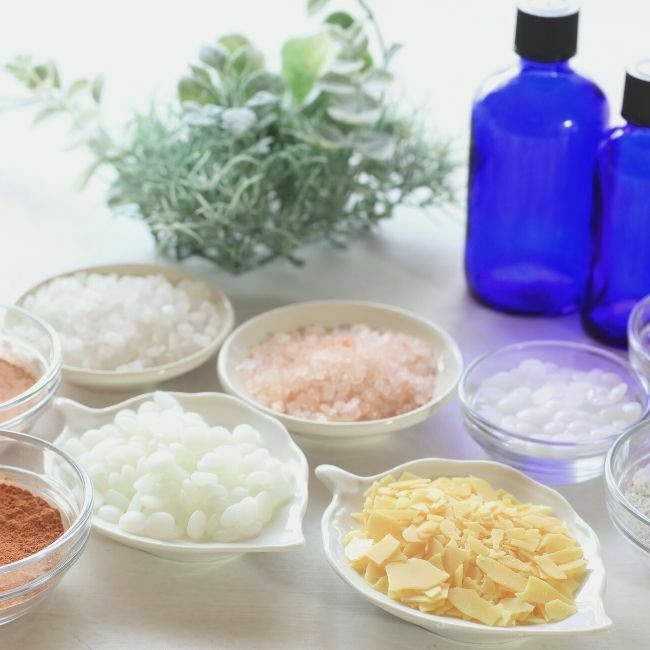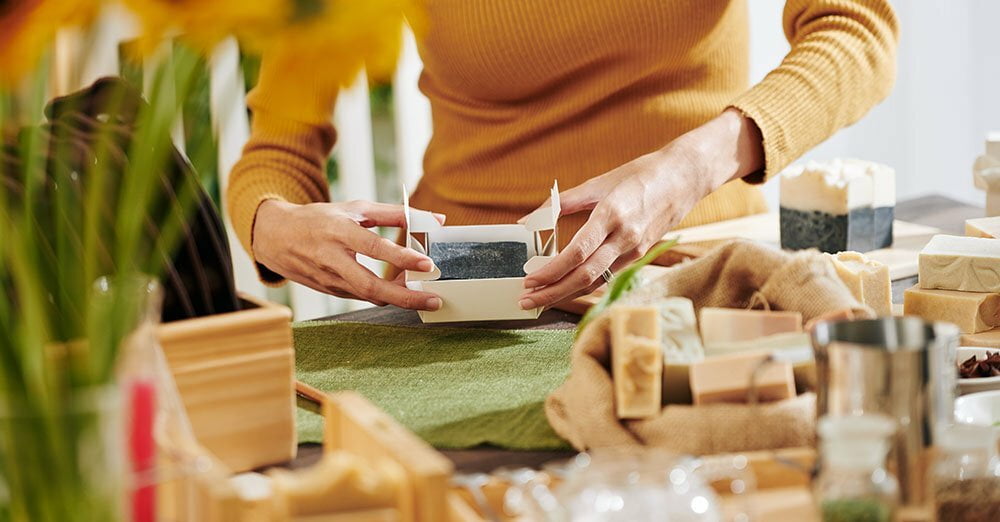The growing environmental awareness has led people not only to prefer natural cosmetics, but also to increasingly engage in making them on their own. Can you produce cosmetics at home and how should you go about it?
Which cosmetics can be made at home?
Contrary to what might be believed, producing homemade cosmetics is not as difficult as it may seem. Basic forms such as ointments, scrubs, and masks often only require mixing the appropriate semi-finished products and certain additional ingredients. Creams that require preparation at specific variable temperatures and the use of emulsifiers may pose a bit more difficulty, but basic knowledge of the subject and finding reliable formulations are still sufficient.
Before deciding to prepare your first cosmetic, it is worth familiarizing yourself with the physicochemical properties of the ingredients used and do some reading about the characteristics of different cosmetic products. For example, before you decide if you want to produce an ointment or a cream, it is helpful to know how these forms differ.
What ingredients should be used in making cosmetics?
Nowadays, homemade production of natural cosmetics is much easier thanks to the availability of semi-finished products and raw materials. Distributors of ingredients for the cosmetics industry provide easily accessible supply of both base products as well as a wide range of diverse plant extracts, oils, fragrances, vitamins, and emulsifiers – both auxiliary substances that improve the durability and quality of the cosmetic and active substances that ensure its desired beneficial properties. However, when deciding on a specific ingredient, it is important to familiarize yourself extensively with its profile, i.e. how to use it, recommended maximum concentrations/dosages, and potential side effects.

Cosmetic raw materials
Natural cosmetic raw materials are not only technological additives affecting the consistency, structure, and durability of the product, but also plant-based biologically active substances that improve properties and add aesthetic value to manufactured cosmetics. We offer high-quality cosmetic raw materials of both categories, sourced only from verified producers and also available for wholesale distribution.
The key to safety and high-quality of the finished product is also sourcing the ingredients only from trusted suppliers and opting for materials of the highest, confirmed quality. Regardless of how safe and healthy a particular substance should be, if it comes from a questionable source, it can not only worsen the quality of the final product but even pose a threat to our health. Risks associated with natural substances and plant extracts are particularly high – misidentification of a plant or contamination with another species can turn a medicinal extract into a toxic one. More expensive and harder-to-obtain raw materials are also sometimes intentionally counterfeited in order to offer them at a lower price.
Homemade cosmetics – for sale or only for personal use?
Making homemade natural cosmetics can be a great way of caring for your skin. Self-prepared products are fully customized to our needs and do not contain harmful compounds that are often difficult to avoid in store-bought products. After all, at home we do not have to worry about the store shelf life of a cosmetic and consequently can reduce the amount of added preservatives. The cost of producing cosmetics at home can also be lower, and the process itself can develop into a truly interesting and unique hobby.
However, can you take the production of cosmetics beyond your home laboratory? While a homemade cosmetic can be offered as a unique gift for a loved one, unfortunately this is where the law puts limits on its legal distribution. Aside from tax issues, for a cosmetic product to be legally marketed it must first undergo appropriate testing and registration.
Moreover, selling homemade cosmetics also requires that your “laboratory” meets the conditions necessary for independent cosmetic production, the products carry labels that satisfy the applicable requirements, and other formalities are fulfilled. Anyone contemplating marketing their own brand of cosmetics should consider outsourcing their production to a specialized cosmetic manufacturing company.
Literature:
- https://blog.zmydlona.pl/legalna-sprzedaz-kosmetykow-jak-to-zrobic/
- https://www.ekologia.pl/kobieta/uroda/kosmetyki-homemade-od-czego-zaczac-samodzielny-wyrob-kosmetykow,22730.html
- https://www.izielnik.pl/blog/jak-zrobic-domowe-kosmetyki-wlasnej-roboty-kilka-wskazowek-i-przepisow


